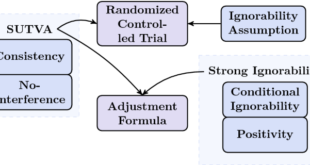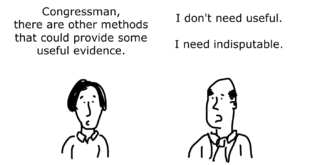Nazis, made in Austria .[embedded content] Der Schmerz, die Nazi-Gräueltaten zu beobachten, umfasst auch die moralischen und ethischen Fragen, die er aufwirft. Wie konnte eine zivilisierte Gesellschaft in solche Barbarei abrutschen? Wie konnten Menschen an solchen abscheulichen Taten teilnehmen oder ein Auge zudrücken? Dennoch finden wir gerade beim Zeugen dieser Geschichte auch ein Gefühl der Verantwortung. Das Beobachten, wie die Nazis — sowohl deutsche...
Read More »Against modularity
Isn’t it the mark of a successful theory of a range of phenomena that it unites and embraces the causally relevant parameters and state variables within a single theoretical perspective? This question suggests that if our theories are successful, then they should produce descriptions of systems according to which the systems are interactionally simple. I think that this would be to put the conceptual cart before the phenomenal horse. As the criterion (one of many) for the...
Read More »My first love
.[embedded content]
Read More »What is meant by ‘rigour’ in evidence-based educational policy?
What is meant by ‘rigour’ in evidence-based educational policy? The bad news is, first, that there is no reason in general to suppose that an ATE [Average Treatment Effect] observed in one population will hold in others. That is what the slogan widespread now in education and elsewhere registers: “Context matters”. The issue in this paper is not though about when we can expect a study result to hold elsewhere but rather when we can have EBPP-style...
Read More »I Have A Dream
I Have A Dream .[embedded content] These days mark the 60th anniversary of Martin Luther King delivering his famous speech I Have A Dream at the March on Washington, which stands as one of the most iconic moments of the American civil rights movement. The speech is still relevant today because it visualizes a dream the society has not achieved yet. Martin Luther King’s influence on civil rights and social justice is indelible. His dedication to nonviolent...
Read More »What are RCTs good for?
What are RCTs good for? RCTs establish causal claims. They are very good at this. Indeed, given the probabilistic theory of causality it follows formally that positive results in an ideal RCT with treatment C and outcome E deductively implies ‘C causes E in the experimental population’. Though the move from the RCT to a policy prediction that C will cause E when implemented in a new population often goes under the single label, the external validity of the...
Read More »Roast Starbucks!
.[embedded content]
Read More »Göran Greider — veckans dumstrut
Göran Greider — veckans dumstrut Bör Sverige ställa upp med JAS-plan i Ukraina? … Det är ett genuint moraliskt dilemma. Ukrainas kamp mot aggressorn är rättfärdigt från början till slut. Och bara Ukraina ska avgöra när något som liknar fredsförhandlingar ens är tänkbara. Så är det. Men risken med ett kraftigt förstärkt ukrainskt flygvapen är att kriget trappas upp och att det varar ännu längre, med ännu fler döda. Jag menar att Sverige inte bör skicka...
Read More »A practice-based account of causal bias
A practice-based account of causal bias No estimated causal results are thus affected solely by the intervention but by many other background attributes and conditions that can give rise to bias between, within or across trial groups. A number of these influence a treatment’s estimated causal effects both within and outside a trial setting. That these and other such demanding preconditions (concauses) would be entirely satisfied for all participants is a...
Read More »Om
Sommaren går mot sitt slut här ute på ön och på vår hamnkrog var det ikväll en spelglad duo som körde ett nostalgipotpurri med svenska örhängen. Ett av dem var den här låten, som onekligen väckte en del gamla minnen till liv: [embedded content]
Read More » Lars P. Syll
Lars P. Syll





